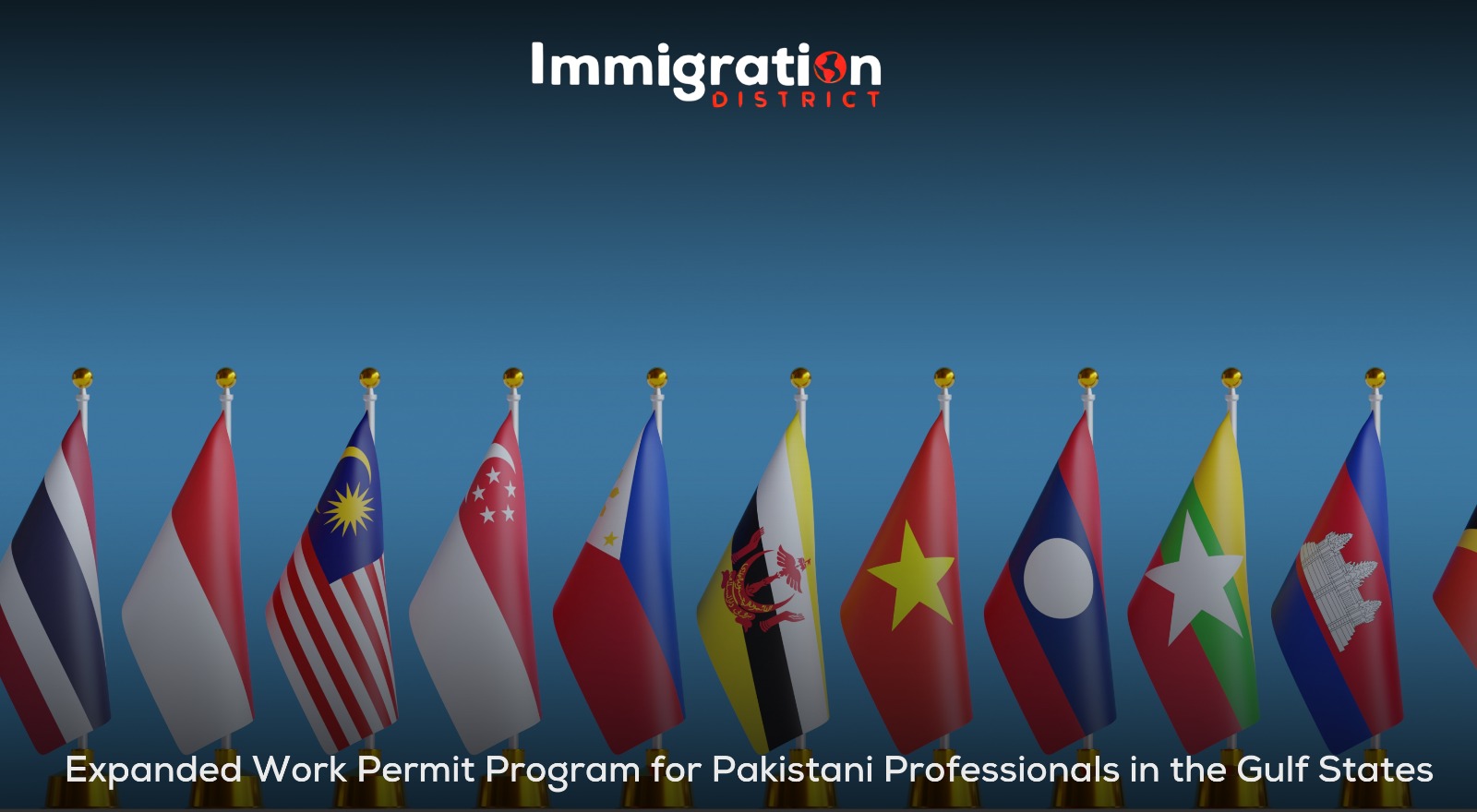
The Gulf region has always been a hub for Pakistani professionals seeking better career prospects and financial stability. In 2025, a groundbreaking initiative promises to reshape this relationship by expanding work permit programs for skilled Pakistani workers in high-demand sectors. This development is timely, as remittances constitute 21% of Pakistan’s GDP, and the expansion directly benefits both countries’ economies.
Recent agreements between Pakistan and Gulf Cooperation Council (GCC) countries, including Saudi Arabia, UAE, Qatar, and Kuwait, address complementary economic needs. Gulf nations seek skilled professionals to fill critical gaps in their rapidly growing economies, while Pakistan looks to diversify its overseas workforce beyond traditional labor sectors.
Adnan Chattha, Chairperson of the CM’s Skills Development Task Force, describes it as a “win-win solution.” Gulf countries gain access to talented Pakistani professionals, while Pakistani workers gain international experience and contribute to Pakistan’s foreign exchange reserves.


A standout feature of the expanded program is the significant reduction in processing times. Skilled professionals can now secure approvals in as little as 10 business days, down from the previous 45 days. This speedup is achieved by simplifying the documentation process through digital authentication methods, cutting down on the bureaucratic delays that previously hampered the placement of Pakistani workers in Gulf nations.
The healthcare sector stands to benefit greatly from this expanded work permit program. Previously, Pakistani medical professionals faced long delays due to complicated licensing procedures and qualification recognition processes. Under the new agreements, doctors, nurses, and medical technicians benefit from expedited licensing and bilateral recognition of Pakistani medical qualifications. This means that professionals from institutions like Aga Khan University Hospital and King Edward Medical University can now have their credentials recognized within weeks, enabling them to start working much sooner.


Software developers, data analysts, and cybersecurity professionals are in high demand across the Gulf, particularly in the UAE’s booming tech industry. With thousands of new tech positions opening in cities like Dubai, Pakistani IT graduates are well-positioned to seize these opportunities. According to the Pakistan Software Export Board, Pakistani technology professionals command competitive salaries, often starting at $3,500 to $5,000 per month—well above domestic pay rates.
“The technology sector pathway offers the fastest processing times,” says a recruitment specialist at Gulf Talent, noting that some permits can be approved in just 10 business days for qualified candidates.
While engineering has long been a strong sector for Pakistani professionals in the Gulf, the expanded program opens up new opportunities in specialized fields such as renewable energy, telecommunications infrastructure, and smart city development. These industries are rapidly growing in the Gulf, creating new career pathways for Pakistani engineers.
For Pakistani professionals looking to capitalize on these expanded work permit opportunities, preparation is essential. The Punjab Skills Development Fund (PSDF) has launched initiatives to equip young people with the skills required by Gulf employers.
“We’ve identified the trades and skills where Punjab’s youth can get training that aligns perfectly with Gulf market demands,” says a PSDF representative. The initial phase aims to train and place 10,000 workers in GCC countries.
To maximize chances of success, professionals should:

As this expanded program continues to grow, the proportion of skilled professionals among the Pakistani diaspora in the Gulf is expected to increase significantly. This shift will not only benefit individuals financially but also foster valuable networks and expertise that could eventually contribute to Pakistan’s domestic development.
For many, the Gulf serves as both a destination and a stepping stone, offering financial rewards now while potentially opening doors to Western countries later in their careers.
With streamlined processes and a focus on high-demand sectors, this expanded work permit program represents a meaningful advancement in Pakistan-Gulf relations, creating exciting new opportunities for Pakistani professionals in the years ahead.
This updated work permit program is a game-changer for Pakistani professionals in the Gulf. The streamlined processes, shorter approval times, and expanded sector opportunities make it easier for skilled workers to thrive in the region, benefiting both their careers and Pakistan’s economy. Don’t miss the chance to explore these new pathways!